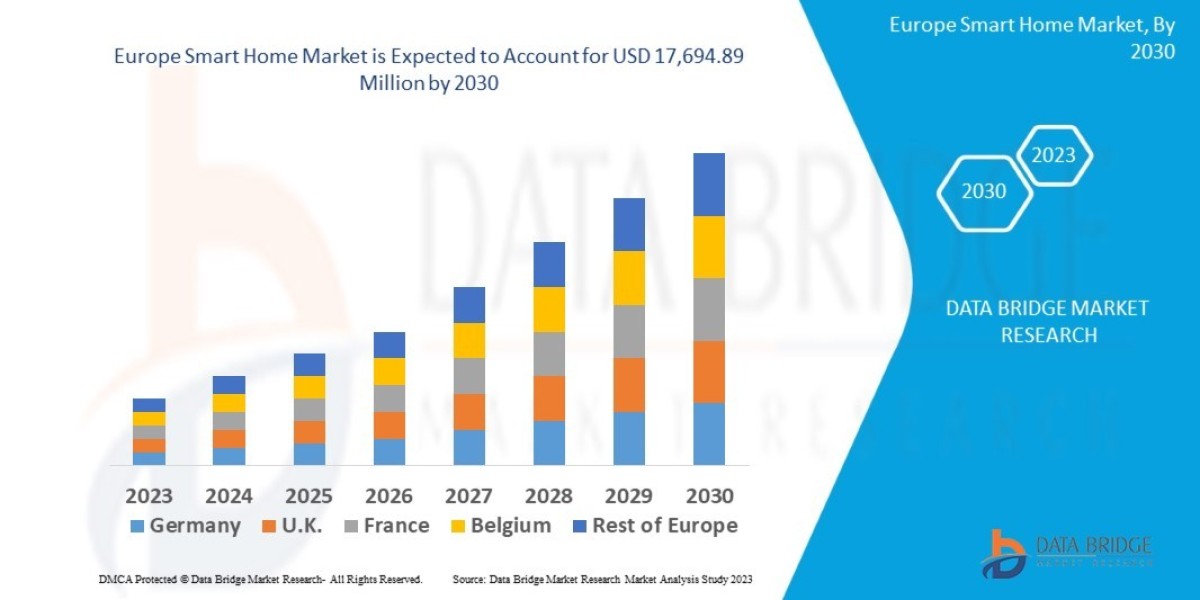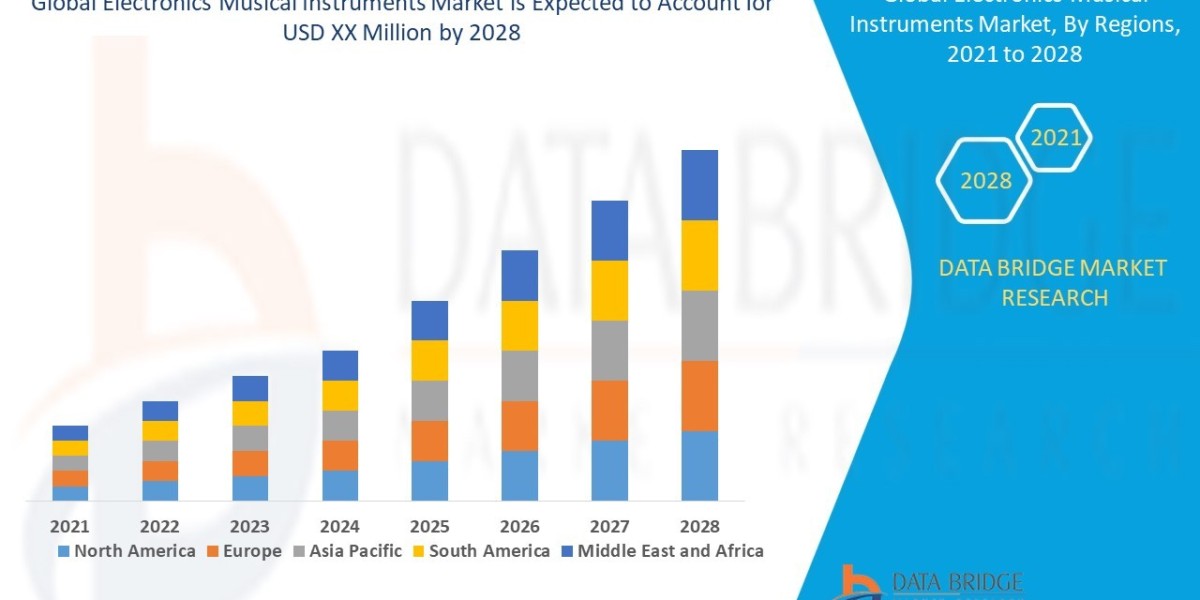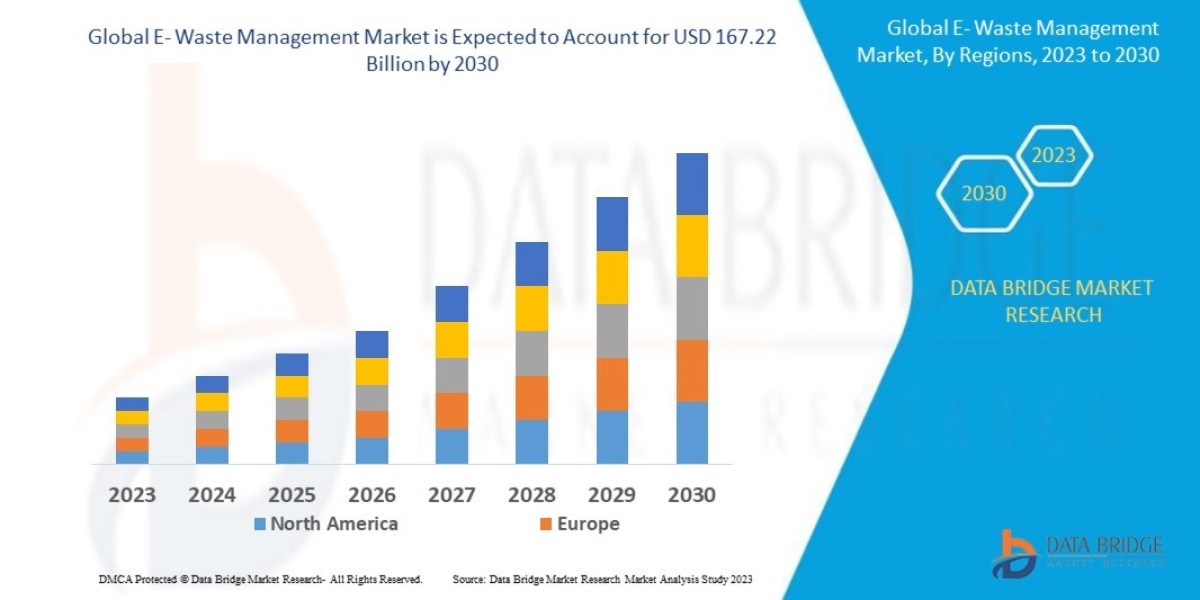"Global Executive Summary Europe Smart Home Market: Size, Share, and Forecast
The Europe smart home market is expected to gain market growth in the forecast period of 2023 to 2030. Data Bridge Market Research analyzes that the market is growing with a CAGR of 18.5% in the forecast period of 2023 to 2030 and is expected to reach USD 17,694.89 million by 2030.
Europe Smart Home Market business report provides data on patterns, improvements, target business sectors, materials, limits, and advancements. With this market report, it becomes possible to gain a holistic view of the market effectively and then also benchmark all the companies in the Europe Smart Home Market industry. Moreover, it works to determine the impact of buyers, substitutes, new entrants, competitors, and suppliers on the market. This gives more accurate understanding of the market landscape, issues that may affect the industry in the future, and how to best position specific brands. An influential Europe Smart Home Market research document estimates the existing state of the market, market size and market share, revenue generated from the product sale, and necessary changes required in the future products.
The significant Europe Smart Home Market research report contains historic data, present market trends, environment, technological innovation, upcoming technologies and the technical progress in the related industry. The research studies involved in this market report helps to estimate several important aspects that includes but are not limited to investment in a rising market, success of a new product, and expansion of market share. Key data and information used while preparing this report has been collected from the consistent sources that range from journals, websites, research papers, case studies, and magazines. Europe Smart Home Market report works as a backbone for the growth of Europe Smart Home Market industry.
Stay ahead with crucial trends and expert analysis in the latest Europe Smart Home Market report.Download now:
https://www.databridgemarketresearch.com/reports/europe-smart-home-market
Europe Smart Home Industry Overview
**Segments**
- **Product**: The smart home market in Europe can be segmented by product into lighting control, security and access control, HVAC control, entertainment control, smart speaker, smart home healthcare, smart kitchen, home appliances, and others. Lighting control systems enable users to control the intensity and color of light through smartphones or voice commands. Security and access control systems include smart locks, surveillance cameras, and motion sensors for enhanced home security. HVAC control systems regulate heating, ventilation, and air conditioning for energy efficiency. Entertainment control systems incorporate smart TVs, audio systems, and streaming devices for seamless entertainment experience. Smart speakers like Amazon Echo and Google Home provide voice-activated control of smart home devices. Smart home healthcare devices monitor health vitals and provide telemedicine services. Smart kitchen appliances include refrigerators, ovens, and coffee makers with IoT connectivity.
- **Technology**: The smart home market in Europe can be segmented by technology into wireless technology, wired technology, and hybrid technology. Wireless technology, such as Wi-Fi, Bluetooth, Zigbee, Z-Wave, and NFC, offers flexibility and ease of installation for smart home devices. Wired technology ensures stable and reliable connectivity but requires professional installation. Hybrid technology combines both wireless and wired solutions to maximize the benefits of each technology based on specific requirements.
- **End-User**: The smart home market in Europe can be segmented by end-user into residential and commercial sectors. In the residential sector, the adoption of smart home technologies is driven by the desire for convenience, security, energy efficiency, and home automation. Smart home devices offer homeowners the ability to remotely monitor and control various aspects of their homes. In the commercial sector, smart home solutions are utilized in offices, hotels, healthcare facilities, and retail spaces to improve operational efficiency, enhance security, and provide a personalized experience for occupants.
**Market Players**
- **Amazon.com, Inc.**: As a leading player in the global smart home market, Amazon offers a range of smart home devices under its Echo and Ring brands. The company's voice assistant, Alexa, integrates with various smart home products to create a seamless connected ecosystem.
- **Google LLC**: Google's smart home offerings include Nest smart thermostats, cameras, and doorbells, as well as Google Home smart speakers powered by the Google Assistant. The company emphasizes privacy and data security in its smart home products.
- **Apple Inc.**: Apple's HomeKit platform enables connectivity and control of smart home devices through iOS devices like iPhones and iPads. The company focuses on interoperability and user experience in its smart home ecosystem.
- **Samsung Electronics Co., Ltd.**: Samsung's SmartThings platform connects a wide range of smart home devices, including sensors, cameras, and appliances, for centralized control through smartphones. The company's SmartThings hub serves as a central hub for smart home automation.
- **Siemens AG**: Siemens offers smart home solutions for energy management, HVAC control, and home automation through its range of building technologies. The company's expertise in industrial automation translates into innovative smart home products for residential and commercial applications.
The smart home market in Europe is experiencing significant growth driven by increasing consumer awareness of home automation benefits such as convenience, energy efficiency, and enhanced security. One emerging trend in the market is the integration of Artificial Intelligence (AI) and machine learning capabilities in smart home devices to provide personalized and adaptive experiences for users. AI-powered smart assistants can learn user preferences and patterns to automate routine tasks and optimize energy consumption. This trend is reshaping the way smart homes operate, offering more intuitive and seamless interactions between users and their connected devices.
Another key development in the European smart home market is the focus on sustainability and eco-friendly solutions. Consumers are increasingly looking for smart home devices that contribute to reducing their environmental impact through energy-efficient features and renewable energy integration. Companies in the market are responding to this demand by introducing smart home products with eco-friendly certifications, such as Energy Star, to appeal to environmentally conscious consumers. This shift towards sustainable smart home solutions is expected to drive further market growth as consumers prioritize reducing their carbon footprint and overall energy consumption.
Moreover, the convergence of smart home technology with the Internet of Things (IoT) is fostering interconnected ecosystems where devices communicate and collaborate seamlessly to enhance user experiences. The proliferation of IoT-enabled devices in smart homes allows for advanced automation and control capabilities across different product segments, creating a unified and cohesive smart home environment. This interconnectedness opens up opportunities for innovative applications in areas such as home healthcare monitoring, predictive maintenance, and personalized entertainment experiences tailored to individual preferences.
As the smart home market in Europe continues to evolve, industry players are focusing on user-centric design and interoperability standards to ensure seamless integration and compatibility between different smart home devices and ecosystems. Standardization efforts by industry consortia and alliances aim to address interoperability challenges and simplify the user experience by enabling cross-brand communication and control. By adhering to common protocols and standards, smart home manufacturers can enhance user adoption and satisfaction, driving further market penetration and growth in the region.
Overall, the European smart home market presents a dynamic landscape characterized by technological innovation, sustainability initiatives, and a growing emphasis on user experience and interoperability. With the continuous evolution of smart home solutions and the integration of AI, IoT, and eco-friendly features, the market is poised for sustained growth and expansion as consumers increasingly embrace the benefits of connected and intelligent living environments.The smart home market in Europe is a rapidly evolving landscape with several key trends and developments shaping its growth trajectory. One notable trend is the increasing integration of Artificial Intelligence (AI) and machine learning capabilities in smart home devices. This integration enables personalized and adaptive experiences for users by allowing smart assistants to learn user preferences and automate routine tasks. By optimizing energy consumption based on user behavior patterns, AI-powered smart home devices offer enhanced convenience and efficiency, driving further adoption among consumers.
Another significant trend influencing the European smart home market is the focus on sustainability and eco-friendly solutions. Consumers are becoming more environmentally conscious and are actively seeking smart home products that help reduce their carbon footprint and overall energy consumption. Companies in the market are responding to this demand by introducing energy-efficient features and obtaining eco-friendly certifications to appeal to sustainability-minded consumers. This shift towards sustainable solutions not only aligns with consumer preferences but also contributes to overall market growth as eco-friendly smart home products gain traction in the marketplace.
Moreover, the convergence of smart home technology with the Internet of Things (IoT) is playing a crucial role in fostering interconnected ecosystems within smart homes. IoT-enabled devices are enabling advanced automation and control capabilities across different product segments, creating unified and cohesive smart home environments. This interconnectedness opens up new opportunities for innovative applications in areas such as home healthcare monitoring, predictive maintenance, and personalized entertainment experiences tailored to individual preferences. The proliferation of IoT-enabled devices is reshaping the smart home landscape, offering users a more seamless and integrated experience.
Furthermore, industry players in the European smart home market are placing increased emphasis on user-centric design and interoperability standards to ensure seamless integration and compatibility between different devices and ecosystems. Standardization efforts by industry consortia and alliances are addressing interoperability challenges and simplifying the user experience by enabling cross-brand communication and control. By adhering to common protocols and standards, smart home manufacturers are enhancing user adoption and satisfaction, ultimately driving further market penetration and growth in the region.
In conclusion, the European smart home market is experiencing transformational changes driven by technological innovation, sustainability initiatives, and an increased focus on user experience and interoperability. With AI integration, sustainability efforts, IoT convergence, and standardization initiatives, the market is poised for sustained growth and expansion as consumers continue to embrace the benefits of connected and intelligent living environments. By staying abreast of these key trends and developments, industry stakeholders can capitalize on the evolving market dynamics and position themselves for success in the competitive smart home landscape.
Access detailed insights into the company’s market position
https://www.databridgemarketresearch.com/reports/europe-smart-home-market/companies
Alternative Research Questions for Global Europe Smart Home Market Analysis
- What is the estimated market value of the Europe Smart Home Market in 2025?
- What is the forecasted annual growth of the Europe Smart Home Market?
- Which industries are key consumers in the Europe Smart Home Market segmentation?
- Which companies are currently investing heavily in the Europe Smart Home Market?
- What are the most recent product innovations in the Europe Smart Home Market?
- What global regions are comprehensively covered in the Europe Smart Home Market analysis?
- Which region is expanding the fastest in terms of market penetration?
- What countries are emerging leaders in the Europe Smart Home Market?
- What region dominated the market last year?
- What are the top three market trends in the Europe Smart Home Market?
Browse More Reports:
Middle East and Africa Glass Packaging Market
Global Hybrid Additive Manufacturing Market
Global Geofencing Market
Global Cerebral Edema Treatment Market
Global Automatic Tire Inflation System Market
Global Storage as a Service (SaaS) Market
Global Robotically Assisted Surgical Devices Market
U.S. Ship Repair and Maintenance Services Market
North America E-Clinical Solutions Market
Global Colour Sensor Market
North America Bakery Processing Equipment Market
Global Nutraceuticals Phenolic Compounds Market
Global Liquid Milk Replacers Market
Global Almond Butter Market
Global Alkalized Cocoa Powder Market
Global Chilled and Deli foods Market
Global Neem Oil and Concentrates Market
Global Neotame Market
Global Wingless/Integrated (WNT) Signaling Pathway Inhibitors Market
North America Image-Guided Surgery Equipment and Robot-Assisted Surgical Equipment Market
Global Aircraft Ejection Seat Market
Global Date Syrup Market
Global Payment Processor Market
Global Pleuritis Market
North America Infectious Disease Diagnostics Market
Global Capnography Equipment Market
North America Flow Chemistry Market
About Data Bridge Market Research:
An absolute way to forecast what the future holds is to comprehend the trend today!
Data Bridge Market Research set forth itself as an unconventional and neoteric market research and consulting firm with an unparalleled level of resilience and integrated approaches. We are determined to unearth the best market opportunities and foster efficient information for your business to thrive in the market. Data Bridge endeavors to provide appropriate solutions to the complex business challenges and initiates an effortless decision-making process. Data Bridge is an aftermath of sheer wisdom and experience which was formulated and framed in the year 2015 in Pune.
Contact Us:
Data Bridge Market Research
US: +1 614 591 3140
UK: +44 845 154 9652
APAC : +653 1251 975
Email:- corporatesales@databridgemarketresearch.com
"


